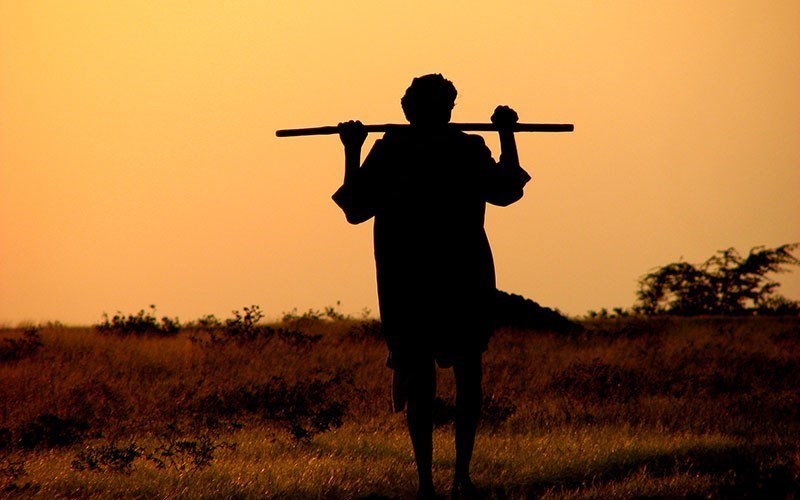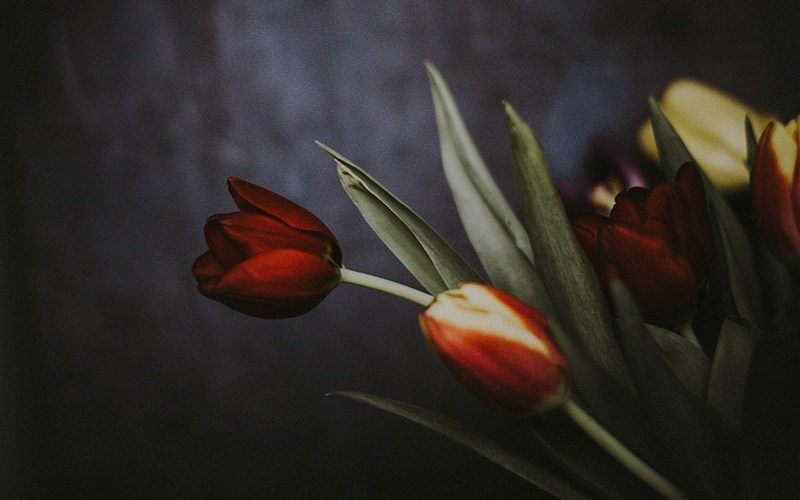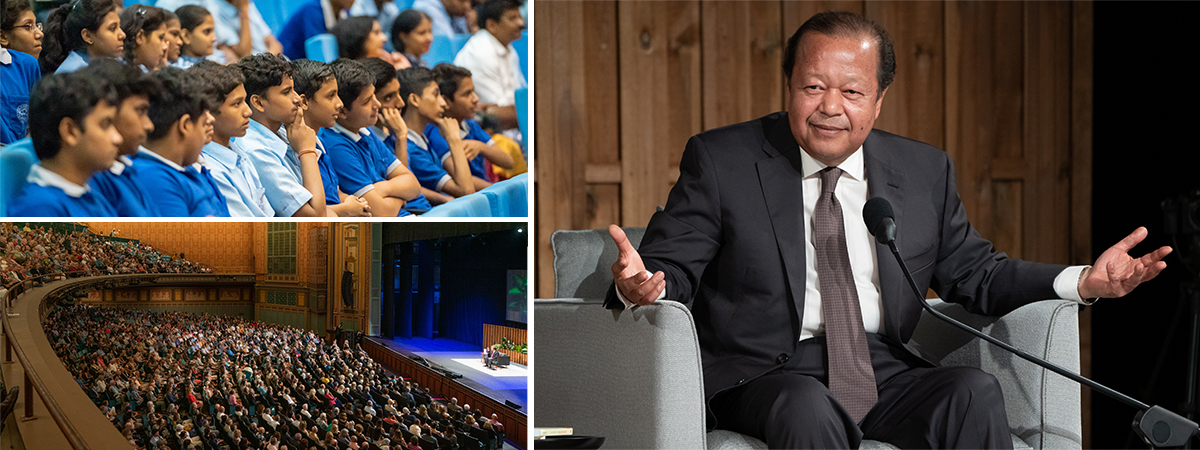Topics
 00:02:44
What is Gratitude?
Video
Duration : 00:02:44
What else of gift can a human give to the Divine except something that is so fun...
00:02:44
What is Gratitude?
Video
Duration : 00:02:44
What else of gift can a human give to the Divine except something that is so fun...
What is gratitude? This is what I was saying yesterday, “Gratitude is when somebody gives you something.
And when you receive that gift, and you feel good—you feel good—then you take some of that ‘good’ that you feel, and give it to the person who gave you that gift.” And that’s gratitude. That’s gratitude—that’s all gratitude is.
You gave me something that made me feel so good; let me give you a little of what you gave me, so you can feel good too. This is being human. What else of a gift can a human give to the Divine, except something that is so fundamentally human? And one thing that is so fundamentally human is that a human can feel good—can feel good.
Nobody can feel good like you do. Seven-point-five billion, six billion—seven, eight, nine, whatever it is now—people on the face of this earth? And each one is unique in how they feel the goodness. It’s their signature. “This is how I feel that goodness; this is how I feel being alive. This is how I feel when I am content. This is how I feel when I am clear.” To give to the Divine the gift of gratitude.
– Prem Rawat
 00:04:00
A Most Memorable Event
Audio
Duration : 00:04:00
There’s no monopoly on compassion.
00:04:00
A Most Memorable Event
Audio
Duration : 00:04:00
There’s no monopoly on compassion.
Somebody once asked me a question in one of the interviews: “You’ve been traveling for fifty years; you have met a lot of world leaders, a lot of important people. Could you tell us about who made the most impact on you?” So I said, “Certainly.” So I told them what happened to me once.
I said I was driving in India, and they had packed a lunch for me, but forgotten to pack any water. So of course, I had lunch, and after lunch I got very thirsty. So as we were driving along, we saw a man, a very poor man, pulling water from a well.
But he’s standing there; he’s pulling water from the well, and we said, “Sir, could you please give us some water? We’re thirsty.” And he said, “Oh, sure, sure, sure!” And he dumped the water he had pulled, and he went in there and got the freshest water from the well that he could, and he brought it up and we had water!
And then, we had our fill, and we thanked him. And then he said, “Listen, I have a little hut, not too far from here. I have last night’s bread and some pickles. I would be honored if you came to my hut and accepted that.” So, of course, we said, “No, we have had lunch. Thank you, and thank you so much for…for this water.” It was his pleasure, he said.
So, of course, the interviewer was looking at me like, am I nuts? I mean, the world leaders I have met, and all these important people I have met, and this is the person I remember? I can’t forget. I cannot forget his generosity. He had nothing to offer, but he offered all that he had. And in that, he has made himself immortal.
He would have never imagined leaving India, but he did, here. Here, he left India, and he has traveled around the world. And I don’t even know his name. I never did ask him his name. But his generosity touched me.
And I’m here to tell you that, regardless of what the report card of the world is, generosity will never go away. It is there…it is there inside each one of you! And this is your blessing. Kindness is your blessing.
There’s no monopoly on compassion. This is the beauty. Compassion can be exercised by a person who is poor or who is rich. Compassion can be exercised by a person who is illiterate or a professor with the most degrees possible. Anybody—whoever wants to exercise this compassion—can exercise compassion because that is right.
– Prem Rawat
 00:02:00
Only for You
Video
Duration : 00:02:00
Do you understand that this is one gift that all the money in the world cannot b...
00:02:00
Only for You
Video
Duration : 00:02:00
Do you understand that this is one gift that all the money in the world cannot b...
This gift of breath is an incredibly powerful gift that you have been given—incredibly powerful, that you have been given. Do you understand its value? Do you understand that this is one gift that all the money in the world cannot buy?
You cannot write it in the will—in a will, in an agreement—that, “All my breath will go to this person.” No. It’s only for you! Accept it, understand it. Cherish life, cherish consciousness, cherish your strength, cherish your heart, cherish knowledge, cherish peace—and you will understand the kindness of the Divine on every human being.
– Prem Rawat
 00:01:04
Forgiveness
Audio
Duration : 00:01:04
The day you decide to move on. That’s forgiveness.
00:01:04
Forgiveness
Audio
Duration : 00:01:04
The day you decide to move on. That’s forgiveness.
Forgiveness doesn’t mean accepting mediocrity, accepting the other person’s mistake. That’s not forgiveness. You know what forgiveness is?
The day you decide to move on. That’s forgiveness. You’re not going to be victimized by this person’s actions, but you want to move on—no more struggle, no more fighting.
When two things oppose each other, that’s a struggle. “Struggle”—because that person still has their hooks in you. And you’re trying to break free, and you’re not able to.
Forgiveness is the day you say, “No. I’m not going to have the struggle. I want to move on.” This is your strength. This is your real strength. And that’s the day you have forgiven. That’s the day you have forgiven.
– Prem Rawat
 00:07:03
Your Priceless Gift
Audio
Duration : 00:07:03
It actually means receiving the most priceless gift again and again and again an...
00:07:03
Your Priceless Gift
Audio
Duration : 00:07:03
It actually means receiving the most priceless gift again and again and again an...
What would it be like for you if somebody said “I'll give you a gift and with this gift, you can do anything you want—anything!” What would that mean to you?
What if somebody came to you and said, “I’m going to give you a gift and it 's priceless. It 's priceless. And I'll not only give it to you once, but I'll give it to you again and again and again and again and again and again and again and again.”
What if somebody came up to you and said, “I’m going to give you the possibility.” If somebody handed you a magic wand and said, “Here, here's the possibility. I...I give you this magic wand. This is...this can make it possible for you to be fulfilled.” What would that mean to you? What would that mean to you?
“That I give you a gift and with this gift just like Aladdin's lamp, with this gift you don't have to suffer any more.” What would that...what...what would that mean to you? I mean, if somebody did that—I mean, it's like, if somebody just said all those things to you, I mean, what would that mean to you?
Wouldn’t it be like, “Wow”? “Yeah, oh, man! That would be incredible. That I could just wave away all my problems? Just, whssst, gone? That I could accept a gift, be given a gift that is priceless, again and again and again?” Yes, yes, yes!
But you know, that’s exactly what has happened. That's what life means. Life isn’t this dreary thing that you have turned it into. It isn’t. It actually means receiving the most priceless gift again and again and again and again and again. And never, ever have to say, “That's enough.” Keep accepting, keep accepting, and it's being given, and it’s being given, and it’s being given, and it's being given.
That you have the possibility to do anything. Anything you want. You can do something hideous, or you can do something incredible. Now the thing is, when it would come to one of those things - hideous or incredible - you would go, “I will do something incredible.” And the definition of incredible would be that “people would admire me.” Because it’s just our habit. Because we don’t do things for ourselves. We do things for ourselves that other people will look at and go, “What a nice guy!”
And it’s a bad habit.
People have come up with excuses that are just grand. I mean they’re just incredibly good, but dumb. I mean it’s like, “… but isn’t that selfish?” All right. Just go that route.
So, you...maybe 40 years old, 50 years old, 60 years old, 70 years old, 80 years old. Still healthy, or decently healthy, or marginally healthy.
So go to the hospital and find somebody who’s dying. And give them four days of your life—four days here, four days there, two days there, two days there. Do it! I mean, that would be incredibly unselfish thing to do, right?! But you can’t do it—even if you want to.
The time you have is only yours. You can't give it to somebody. If we could give time away—our time, this existence, away—there would be no poor people in this world. (You understand that, right?) There would be no poverty. Because all the poor people could then sell their time to the rich people.
And every time you’d, like, you know, had too many parties, and kind of running out of money, you sell one more day. And eventually, you know, it would get to be like, “Okay, one hour. I'll...I'll...million bucks? One hour.” Just But you can't do it!
You can’t do it. Because what is yours is yours! This is the rule! You come. You are alive. And one day you go. And you're not enamored by life! Here's the problem. You celebrate your birthday once a year.
And you think about death just about every day. How can this be? So, let's put to rest the “selfish” bit and get on with the business of accepting this life that has been—and you can say—“given to us” if you want. It doesn't matter if you don't say—“It wasn't given. It was plopped here; it was dumped here” or….it doesn't matter—you have it!
And how do you begin to accept this, to really understand the value of the gift that you’ve been given?
Prem Rawat
 00:04:24
We Cannot Teach Gratitude
Audio
Duration : 00:04:24
True gratitude does not have to be taught!
00:04:24
We Cannot Teach Gratitude
Audio
Duration : 00:04:24
True gratitude does not have to be taught!
There was a time when I was named “Prem”—and I couldn’t say “Prem.” I couldn’t pronounce my own name! Who was I, then? Somebody else? “Gaga goo-goo”? Can you imagine, all of us would be named “Gaga Goo-Goo.” We all said “gaga goo-goo”.
So, “Nice to see you, Gaga goo-goos.” But, it’s not that! It has nothing to do with it! “What is the reality?” Unless you can get to that, the rest doesn’t matter.
People in their lives: “Oh my God, I have this problem.” You know, you’re not that unique. You’re pretty unique. You’re not that unique. Let me explain something. This problem that you’re experiencing? It’s used. Somebody else had it before. And now you have it. And when it’s done with you, it’ll go find somebody else. They’re not unique! It feels like they’re unique, but they’re not unique.
Because in this life, in this existence, find that lake—the lake of serenity—and swim and feel. And that’s how gratitude comes. That’s the true gratitude. True gratitude does not have to be taught! We teach our kids, “Say ‘thank you.’”
My own daughter, with my grandson: “And what do you say?” And he goes, “Thank you.” And I was thinking about that one day...what is gratitude? So, gratitude truly is when somebody does something for you that is good, and because that made you feel good, you take some of that goodness and you give that in return to that person. That’s gratitude. Not “Thank you.”
This is what we need to teach—because gratitude is extremely important. But we have shortchanged it by these words called “thank you.” Indians have the similar word; it’s called “sorry.”
They say it for everything—“Sorry. Sorry? Sorry. Sorry-sorry-sorry! Sorry. Sorry-sorry-sorry, sorry, sorry-sorry, sorry.” It’s almost like “thank you” to them.
But we’re starting to teach words, where what needs to be taught is feeling. So, in the same way, peace is not this word, “peace.” Peace is something else; it cannot be described. And that’s what you need to feel every day in your life.
– Prem Rawat





